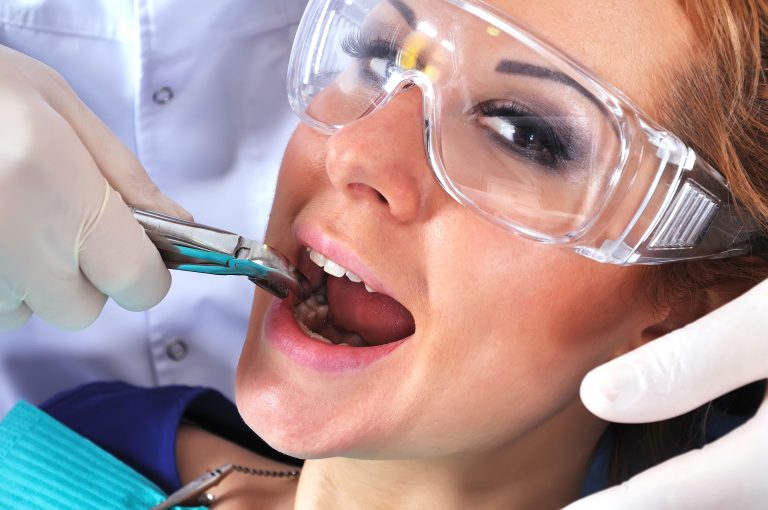Dentistry is not expensive but neglect is…..goes a dental saying. Losing a tooth can be a big blow to your smile and eating habits, but may be inevitable at times. We at Positive Dental health, make tooth extraction a last resort if restoration is not possible or where it is the desire of the patient after discussing all the available options. Make sure not to neglect your dental health to keep your pearls in top shape.

What is it?
Tooth extraction is the removal of a tooth from its socket in the bone. If a tooth has been broken or damaged by decay, your dentist will try to fix it with a filling, crown or other treatment. Sometimes, though, there’s too much damage for the tooth to be repaired. In this case, the tooth needs to be extracted.
Reasons for Pulling Teeth

Preparation:
Before pulling the tooth, your dentist will give you an injection of a local anesthetic to numb the area where the tooth will be removed.
Pulling a Tooth (Tooth Extraction)
What to Tell Your Dentist before You Have a Tooth Pulled
- Damaged or man-made heart valves
- Congenital heart defect
- Impaired immune system
- Liver disease (cirrhosis)
- Artificial joint, such as a hip replacement
- History of bacterial endocarditis
